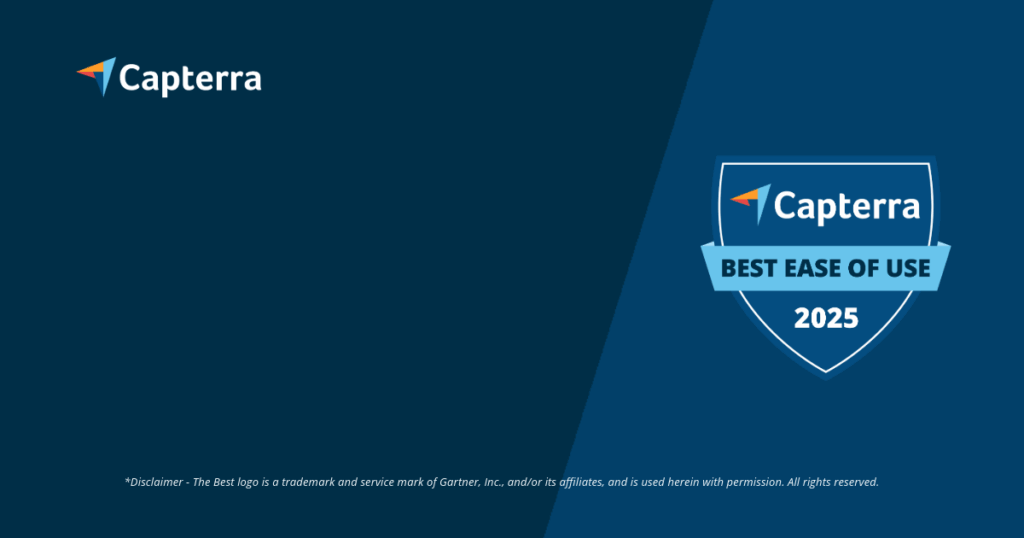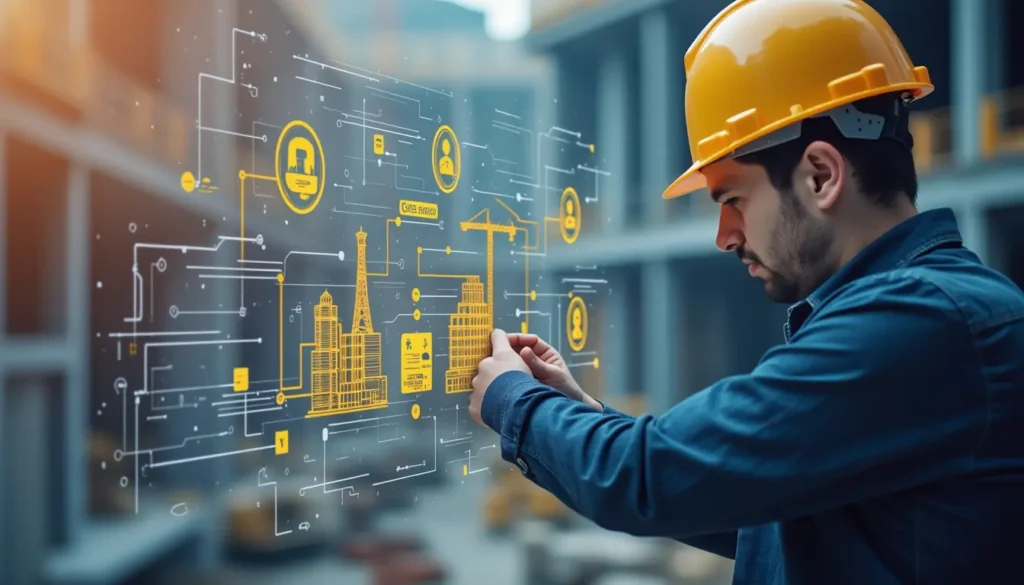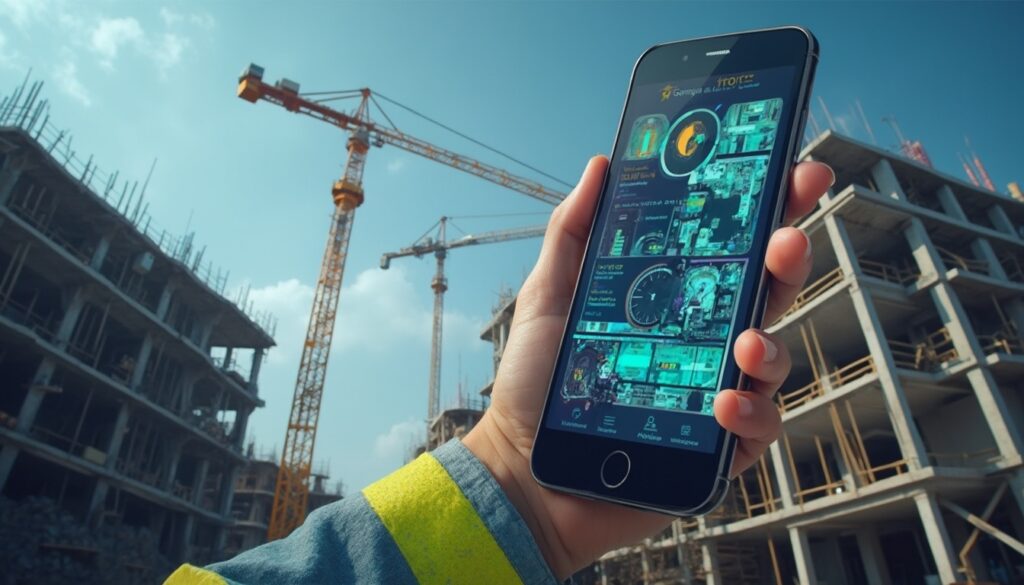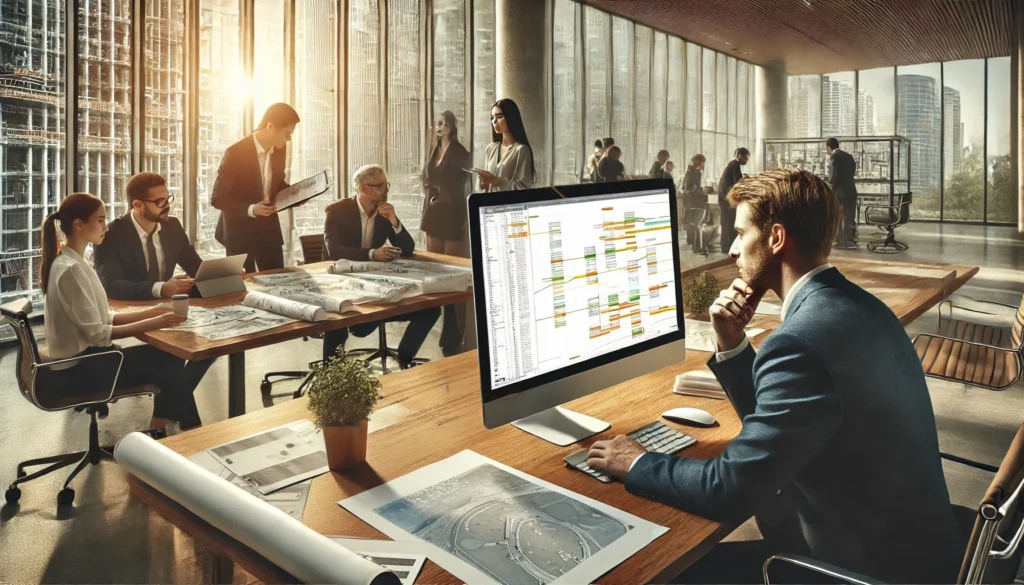Increasing efficiency through property management software: A must for modern property management
Digitalization has long since arrived in the real estate sector, and let’s be honest: A professional property management software is simply essential today if you want to manage properties efficiently. But what exactly is behind it? Essentially, property management software is a clever computer program specifically designed to simplify and automate the many different tasks and processes involved in managing residential and commercial properties. It helps us property managers keep track of rental agreements, owners’ associations, accounting, maintenance measures, and of course, communication with all involved parties. Investing in such software is not only a step towards modernization but a truly strategic decision to become more productive and minimize sources of error. Join us on a little journey of discovery and find out how you can find the right software solution for your unique requirements and sustainably improve your management processes. If you want to dive deeper into related topics, we recommend our articles on Maintenance Software und Facility Management Software to your attention.
- Simplification and automation of management tasks and processes.
- Centralized data storage that ensures all information is current and easily accessible.
- Automation of routine processes such as utility billing, reminder notices, and preparation of business plans.
- Increased transparency for tenants and owners, for example through online portals.
But why is a professional property management software so important now? Well, our industry is characterized by complex legal requirements, countless communication channels, and a true flood of administrative tasks. This is exactly where specialized software shows its strengths. It enables centralized data storage – this means all information is always current and accessible to the right people. This not only saves an incredible amount of time searching for documents but also reduces the risk of losing anything. And then there’s the automation of routine tasks: Just think about utility billing, reminder notices, or creating business plans. All of this goes much faster with software support and is less prone to errors. A good property management software also ensures greater transparency for tenants and owners, for example, through online portals that provide access to important documents and information. This strengthens trust and makes all parties involved more satisfied. Such software is indeed relevant for property management companies of all sizes, for WEG managers dealing with complex ownership structures, and for private landlords looking to manage their properties efficiently and in compliance with the law. To better evaluate the offerings, find out more about the Market overview of CAFM Software.Problem-solving in property management: Software as a solution approach
Typical problems without software support
Anyone working in property management without dedicated property management software knows this for sure: You often struggle with a whole range of challenges that can significantly impact the efficiency and quality of work. One major issue is inefficient communication. Information gets lost in torrents of emails, important agreements are not documented properly, and following up on requests becomes a test of patience. This quickly leads to misunderstandings and frustrating delays. Another critical point is the high manual effort for standard processes. Creating utility bills, monitoring incoming payments, sending reminders, and general accounting – without software support, this consumes many, many hours of manual labor. These processes are not only time-consuming but also error-prone, especially when data must be entered and processed by hand. And if centralized data storage is also missing, transparency suffers – both internally and externally for tenants and owners. Finding specific documents or information can take ages, which naturally limits responsiveness. For specific requirements in the area of homeowners’ associations, a look at WO WEG Property Management Software may be worthwhile.
- Addresses typical problems such as inefficient communication and high manual effort that arise without software support.
- Optimizes information flow through centralized communication tools and integrated document management, making data bundled and easily accessible.
- Automates time-intensive routine tasks like utility billing and reminder notices, saving valuable working hours and minimizing human errors.
- Improves transparency for tenants and owners through online portals and ensures that information is accurate and current through digital recording.
How property management software solves these challenges
Fortunately, modern property management software really offers effective solutions here. Through centralized communication tools and integrated document management, the flow of information is optimized. All relevant data and all correspondence related to a property or tenant are bundled in one place and super easily accessible. This not only improves teamwork but also communication with external partners such as tradespeople. A huge advantage lies in the automation of processes. Recurring tasks such as creating utility bills, sending invoices, or generating reports can mostly be automated. This not only saves valuable working time but also minimizes the risk of human errors. The software ensures improved transparency, by offering tenant and owner portals, for example. Through these portals, relevant documents can be viewed, damage reports submitted, or current information retrieved. The digital recording and processing of data ensures that all information is correct and current, greatly reducing the error rate and forming the basis for informed decisions. The right property management software can really become the backbone of a modern and efficient property management .The functionality of modern property management software: From A for billing to Z for centralization
Comprehensive overview of features
A truly powerful property management software has a lot to offer and covers a wide range of functions to support the entire management cycle of properties. For example, there’s tenant management, which encompasses everything from maintaining master data to managing lease agreements to handling all correspondence. For homeowners’ associations, management of WEG with functions for managing owner data, documenting resolutions, and creating minutes is absolutely essential. A core component is of course accounting, which includes rent receipts, expenses, reminders, and often a DATEV export for the tax advisor. The – that is, their creation, sending, and adjustment to individual agreements – is another central function that is enormously simplified by software. Also, the maintenance management, which includes order management, tradesperson coordination, and processing of damage reports, is an important component. A robust document management system ensures centralized storage and an audit-proof archiving of all important documents. Modern solutions also offer integrated communication platforms like tenant and owner portals or even a messenger integration. Finally, flexible reporting allows for the creation of individual evaluations and financial reports, which is invaluable for managing and controlling administrative activities. A good property management software is truly a multi-talented tool.
Mobile accessibility and apps
In today’s mobile working world, the mobile accessibility of property management software via apps is super important, especially for colleagues in the field. Caretakers, property supervisors, or managers who are regularly on-site benefit enormously when they can directly access relevant data and complete tasks on the go. Apps for smartphones and tablets enable the data collection directly at the site – whether during property handovers, inspections, or taking meter readings. Task management also becomes much easier with mobile applications: Tasks can be assigned, edited, and marked as completed, often even with photo documentation. This direct capture and transmission of information significantly reduces administrative effort in the office and minimizes transfer errors. The ability to upload photos of damages or completed work directly into the property management software improves documentation and transparency immensely. Therefore, when selecting software, one should also pay attention to the quality and functionality of the mobile app to ensure a consistently digital and efficient workflow. This is particularly relevant for the Facility Management.
Integrations and interfaces
The ability of a property management softwareto seamlessly integrate into existing system landscapes and communicate with other applications is another important quality feature. Interfaces to banks allow for the automated reconciliation of incoming payments and greatly simplify accounting. Integrations with measurement service providers facilitate the transfer of consumption data for utility billing. The connection to tradesperson portals can also optimize order placement and processing in maintenance management. An open API (Application Programming Interface) is particularly valuable as it allows for individual customizations and the connection of other specialized software solutions or hardware. This gives us property management companies the flexibility to optimally tailor our IT infrastructure to our specific needs and future-proof it. Therefore, the selection of a property management software should always consider the available standard integrations and the possibilities for individual connection via APIs to avoid isolated solutions and create a seamless digital workflow. A good Maintenance Software for spare parts management can also be advantageous here.Strategic selection: Finding the right property management software for your company
Define requirements
The selection of the right property management software always starts with a thorough inventory of your specific requirements. It’s best to create a detailed requirements catalog, in which you clearly distinguish between essential functions (‘Must-haves’) and desirable additional functions (‘Nice-to-haves’). Consider the current and future size of your company as well as the type and scope of your property portfolio. A small private rental has different needs than a large WEG management or a company managing commercial properties. Make sure to set a clear budget that accounts not only for the acquisition or rental costs of the software but also potential expenditures for implementation, training, and ongoing support. This careful preparation is truly crucial for finding a property management software that optimally supports your processes and provides real added value. Also consider whether a maintenance management system is relevant for your portfolio.
- Start with a detailed definition of your specific requirements, differentiate ‘Must-haves’ from ‘Nice-to-haves’, and set a clear budget that considers all cost factors.
- Carefully weigh the pros and cons of cloud-based solutions (SaaS) versus on-premise installations, especially in terms of flexibility, costs, data control, and maintenance efforts.
- Pay attention to high user-friendliness and low training effort to increase team acceptance, as well as scalability and modularity for future growth and adaptability.
- Conduct a comprehensive cost analysis that includes not only acquisition or rental costs but also expenses for setup, training, and support, and use trial phases or demos for practical evaluation of the software.
Cloud vs. On-Premise
A very fundamental decision when selecting a property management software concerns the operating model: Should it be a cloud solution (Software as a Service, SaaS) or an on-premise installation? Cloud solutions offer high flexibility as they can be accessed from anywhere with internet access and generally have lower initial investment costs. Updates and maintenance are handled by the provider – very convenient! In contrast, on-premise solutions focus on software licenses and the in-house IT infrastructure. This means full data control but also more responsibility for maintenance and security. Data protection aspects and compliance with security standards such as GDPR are of course extremely important for both models. Many cloud providers, such as , place a high emphasis on data security and host their servers in certified German data centers. Weigh the advantages and disadvantages carefully to choose the option that best suits your requirements. The decision completely depends on your IT resources, security requirements, and preferences regarding data sovereignty.
User-friendliness and training efforts
Die User-friendliness of a property management software is an often underestimated but absolutely critical factor for its successful introduction and use. An intuitive operation and a clear structure of the user interface ensure that employees can quickly get familiar with it and enjoy using the software. Low training effort saves time and costs and accelerates the amortization of the software investment. Make sure the provider offers understandable documentation, tutorials, or even personal training sessions. A readily accessible and competent support is also invaluable should questions or problems arise. The software should be designed so that even new employees can work productively with it without lengthy onboarding periods. Software like advertises, for example, with an interface modeled after office products to facilitate onboarding. Our tip: Ideally, test user-friendliness within a demo version to ensure the chosen solution meets the skills and needs of your employees.
Scalability and modularity
The ability of a property management software, growing with the requirements of your company, is a decisive criterion for a future-proof investment. Scalability means that the software is suitable for both small portfolios and large property holdings and can be easily expanded when needed – for example, regarding the number of managed units or users. A modular design is beneficial here as it enables the individual configuration of the software’s functionality and the licensing of only those modules that are actually needed. This way, unnecessary costs for features you do not use are avoided. Check whether the software offers different performance packages or editions tailored to different company sizes and requirements, as is the case with or . Flexible and modular software adapts to your needs – and not the other way around.
Cost analysis
A careful Cost analysis is essential before you decide on a property management software . Compare the various pricing models of providers. Common options are one-time payments for license acquisition (often for on-premise solutions) or monthly or annual subscription fees (typical for cloud software). Consider not only the base costs but also potential additional costs for optional modules that you may need later. Also include costs for initial setup, data migration, customizations, training, and ongoing support in the total calculation. Some providers base their prices on the number of managed units or users. Ask specifically about all potential costs to avoid nasty surprises. A seemingly inexpensive software solution can quickly turn out to be costly due to hidden fees. Therefore, transparent pricing and clear contract terms are important selection criteria. The can vary widely.
Utilize trial phases and demos
Before making a final decision for a property management software , you should definitely take the opportunity to thoroughly test the software. Many providers offer free trial phases or demo versions . This gives you the chance to evaluate the functionality and user-friendliness of the software in practice and check whether it truly meets your specific requirements. Also involve future users from your team in the testing process to consider their feedback – that is super important! During the trial phase, pay attention to how intuitive the operation is, whether all necessary core functions are present, and how well the software integrates into your existing workflows. Note down questions and uncertainties to clarify them with the provider later. A thorough trial phase minimizes the risk of a wrong decision and ensures that the chosen property management software provides real added value for your company. Providers like immocloud offer a 45-day free trial – a fantastic option!Market overview: Leading property management software solutions in detail
Introduction of various providers
The market for property management software is truly diverse and offers a wide range of solutions for various needs. For instance, there’s immocloud, which positions itself as a cloud-based software with a comprehensive range of features. It includes modules for property management, accounting, communication, and document management, with a strong emphasis on data security in German data centers. Win-CASA is a scalable solution that is suitable for both small private landlords and large professional property management companies with over 10,000 units, offered as both a local installation and a cloud app. Aareon provides tiered solutions for different portfolio sizes with SmartImmo and Aareon Property Management, focusing on legal compliance and comprehensive reporting functions. DOMUS offers a product suite (DOMUS 1000, 4000, NAVI, etc.) tailored to different degrees of complexity and requirements in property management, emphasizing mobile accessibility and CRM features. casavi focuses on process automation, integration via an open API, and enhancing customer and employee satisfaction through digital communication channels and a customer portal. Leikom utilizes AI for automating accounting processes and offers extensive customization options. Other noteworthy providers that often appear in comparisons, such as , include SMARTBRIX, objego, hellohousing, and sevDesk Real Estate, each with their own focuses and target audiences. So you can see: Choosing the right property management software requires a careful analysis of your own needs.
Comparison of features and prices
A direct comparison of the features and prices of different property management software is absolutely essential for an informed decision. Look closely at core functions such as tenant and WEG management, accounting including reminder enforce payments and DATEV interface, utility billing, maintenance management, and document management. Pay attention to specific features that are particularly important to you, such as mobile apps, customer portals, integration capabilities, or AI-supported automation. Pricing models vary widely: Some providers rely on one-time payments, while others depend on monthly or annual subscriptions, often tiered by the number of managed units or users. For example, Win-CASA starts at around 29 euros per month, while SMARTBRIX is listed with a starting price of 350 euros (rent). It’s important not only to consider the base price but also additional costs for modules, training, and support. Our advice: Utilize trial versions to personally assess user-friendliness and functionality. A detailed comparison helps you find the software solution that offers the best value for your specific requirements.
Key benefits of the right property management software
Implementing the right property management software brings a whole range of advantages that go far beyond mere ease of work. Here are the most important ones at a glance:
- Increased efficiency: By automating routine tasks such as billing, reminder notices, and correspondence, valuable working time is saved. This time can then be used for strategically important activities.
- Cost reduction: Less manual effort means lower personnel costs. Clever, right? Moreover, optimized processes and better oversight can help avoid errors that would otherwise incur costs. The question “” should always be viewed in the context of potential savings.
- Improved transparency and communication: Centralized data storage and customer portals enable fast and easy access to information for owners and tenants. This greatly increases satisfaction and trust. Legal certainty:
- Many software solutions assist in complying with legal requirements (e.g., GDPR, rental law) and help create accurate and timely billing. This minimizes the risk of legal disputes. Viele Softwarelösungen unterstützen bei der Einhaltung gesetzlicher Vorgaben (z.B. DSGVO, Mietrecht) und helfen, Abrechnungen korrekt und termingerecht zu erstellen. Das minimiert das Risiko rechtlicher Auseinandersetzungen.
- Better decision-making: Comprehensive reporting functions and quick access to current key figures allow you to make informed business decisions.
Future-proof management: Trends in property management software
Artificial intelligence (AI) and automation
The integration of artificial intelligence (AI) and advanced automation is significantly transforming the landscape of property management software right now. AI-powered systems can, for example, automatically recognize, code, and book invoices – just as some providers like Leikom promise to automate over 75% of accounting processes. This drastically reduces manual entry effort and minimizes errors. Quite clever, isn’t it? Intelligent chatbots can answer standard inquiries from tenants and owners around the clock, relieving customer service and improving response times. Predictive analytics based on AI could help us identify maintenance needs early or better predict rental price trends in the future. Automation also extends to complex workflows, from damage reporting to engaging tradespeople to invoice verification. All these developments aim to further enhance efficiency and provide us administrators with more time for strategic tasks and personal customer care. When selecting a forward-looking property management software one should also keep the provider’s AI roadmap in mind.
Cloud-based solutions and mobile accessibility
The trend towards cloud-based solutions is unstoppable and for good reason. SaaS models offer numerous advantages such as lower initial investments, automatic updates, scalability, and access from anywhere with internet connection. This fosters flexible work models and greatly facilitates collaboration in distributed teams. In parallel, the property management software setzt sich unaufhaltsam fort, und das aus gutem Grund. SaaS-Modelle bieten zahlreiche Vorteile wie geringere Einstiegsinvestitionen, automatische Updates, Skalierbarkeit und den Zugriff von jedem Ort mit Internetverbindung. Das fördert flexible Arbeitsmodelle und erleichtert die Zusammenarbeit in verteilten Teams ungemein. Parallel dazu gewinnt die mobile accessibility importance of apps is steadily on the rise. Modern apps today offer far more than just data access; they enable the complete processing of transactions in the field – from digital property handover with documentation and signatures to mobile damage recording, including photo documentation and direct communication with tradespeople. The seamless synchronization between the mobile app and the central software solution ensures that all data is always up to date. Providers like immocloud and Win-CASA continuously invest in the further development of their mobile applications to meet the demands of a modern mobile working world. For many, the question “” is closely tied to the quality of the mobile solution.
Data security and data protection
Given the processing of sensitive personal and property-related data, considerations of Data security and data protection bei der Auswahl und dem Betrieb einer property management software of course the top priority. Compliance with the General Data Protection Regulation (GDPR) and other relevant data protection regulations is essential for us property management companies to avoid legal consequences and reputational damage. Software providers must therefore implement robust security measures to ensure the confidentiality, integrity, and availability of the data. This includes secure data transmission channels (e.g., SSL/TLS encryption), modern encryption techniques for stored data (e.g., AES256-GCM, as used by immocloud), regular security audits, and certified data centers, ideally located in Germany or the EU. Pay attention to certifications such as ISO 27001 or attestations in accordance with GoB (Principles of proper accounting). A transparent representation of the data protection measures by the provider and clear regulations for order processing are important indicators of trust when deciding on a property management software.Valoon GmbH: We are revolutionizing communication and project management in property management
Introduction to Valoon GmbH
At Valoon GmbH, we have made it our mission to fundamentally optimize communication and project management across various industries, and especially in property management. Our focus is on significantly simplifying data collection and processing and sustainably improving the flow of information between field staff – for example, during property inspections or damage assessments – and the office. We develop B2B SaaS solutions that are characterized by simplicity, efficiency, and highest user-friendliness . Because we understand that clear and traceable communication, as well as structured task management, are crucial for success, especially in property management. Our approaches in the area of property management software aim to strengthen exactly these areas and provide you as a manager with tools to effectively tackle your daily challenges. property management software We are firmly convinced that technology should facilitate and not complicate everyday work.
The unique value proposition of Valoon
What makes us special at Valoon? Our unique value proposition is to offer one of the easiest project management software solutions in the world. It is specifically designed to transform everyday messenger communication, such as that which occurs via WhatsApp, into structured and actionable project data for your property management software-processes. Imagine this: your caretakers or external service providers report damages or completed tasks simply via WhatsApp messages, including photos and voice notes. This information is then automatically recorded, assigned to the correct property, and set up in your system as a task or report. This eliminates information overload from unstructured messages and the need for complex software training for field staff, who often lack dedicated IT skills. We lower the barriers to entry for digitization and enable property management companies to fully tap into the efficiency potential of modern communication technologies without having to give up existing and established communication channels.
Core features and benefits for property management through our solutions
Our cloud-based SaaS platform offers specific advantages and core functions that are ideally tailored to the needs of property management and can perfectly complement or revolutionize its communication aspects. The property management software digital on-site recording via messengers like WhatsApp, Telegram, or MS Teams is a central advantage. Your employees in the field can use familiar tools to transmit information quickly and easily. This data is then automatically structured in our system and fed into a central task management system. This way, you always keep an overview of open issues, responsibilities, and deadlines. Our intelligent reporting system allows for easy creation of photo documentation, measurements, or daily reports directly from the recorded data. Another plus is the wie WhatsApp, Telegram oder MS Teams ist ein zentraler Vorteil. Ihre Mitarbeiter im Außendienst können vertraute Werkzeuge nutzen, um Informationen schnell und unkompliziert zu übermitteln. Diese Daten werden dann in unserem System automatisch strukturiert und einem zentralen Aufgabenmanagement zugeführt. So behalten Sie stets den Überblick über offene Punkte, Verantwortlichkeiten und Fristen. Unser intelligentes Berichtswesen ermöglicht die einfache Erstellung von Fotodokumentationen, Aufmaßen oder Tagesberichten direkt aus den erfassten Daten. Ein weiterer Pluspunkt ist die automatic translation in over 50 languages, significantly facilitating collaboration with non-German speaking employees or service providers. With our API and web application, you always have access to the structured information and can seamlessly integrate it into your project management functions. We help you elevate communication to a new level in the Facility Management and the property management .Conclusion: The right property management software as a foundation for your success
Summary of the key points
Phew, that was a lot of input! Let’s summarize the most important points: Choosing and implementing suitable property management software is a truly decisive factor for the efficiency, transparency, and future viability of any property management. As we have seen, it is not just about finding any software but a solution that optimally supports your specific processes and helps you tackle challenges like information overload and high manual effort. Important selection criteria are the functional scope, user-friendliness, scalability, pricing model, as well as aspects like mobile accessibility and integration capability. Trends like AI-supported automation and cloud solutions shape the development and offer great new opportunities for optimization. A good software solution is more than just a tool; it is a strategic partner that helps you use your resources better and increase the satisfaction of your customers and employees. Investing in the right technology is therefore an investment in the long-term success of your company. Also consider specialized solutions like Cleaning Services Software, if this is relevant for your business.
Outlook and recommendations
Investing in the right property management software is a strategic decision that can have far-reaching positive effects on your company. It not only enables a more efficient handling of daily operations but also creates space for proactive management and the development of new service offerings. Given the rapid technological development, it is important not only to meet current needs but also to keep future requirements in mind. Pay attention to providers that continuously invest in the development of their products and integrate innovative technologies like AI or enhanced mobile functions. Our tip: use trial phases and demos to thoroughly test the software and involve your team in the selection process. A carefully selected property management software will help you optimize your processes, reduce costs, and sustainably improve the quality of your services. And this is where we come into play: Valoon GmbH stands by your side as a partner to revolutionize the communication and project management aspects of your property management. We help you convert everyday communication into structured data and thus increase efficiency. Sounds good? Then contact us today to start your individual consultation and learn more about how we can support your property management. Register for a free consultation and get first insights into how you can optimize your processes.Frequently Asked Questions (FAQ) about property management software
When selecting and implementing a property management software similar questions often arise. To make it easier for you, we are answering some of the most common concerns here.
Which is the best property management software?
The question of all questions! But the honest answer is: The “best” property management software is always the one that best suits your specific needs and requirements. There simply isn’t one solution that is optimal for everyone. Important factors are the size of your portfolio, the type of properties managed (rental, WEG administration), your budget, and of course, the desired functions. Comparisons like “” list options like SMARTBRIX, objego, or immocloud, but a thorough evaluation is essential. Define your priorities: Do you need strong accounting, an advanced customer portal, or a super simple mobile app? Our advice: test various systems to find the software solution that is right for you.
What does property management software cost?
The costs for a property management software can really vary significantly and depend on various factors. These include the functional scope, pricing model (i.e., one-time purchase or subscription), the number of managed units, and the required support. Simple solutions for private landlords can be available from around €4.50 per month (e.g., hellohousing web app according to), while professional systems for large management companies can cost several hundred euros per month. Also consider potential additional costs for modules, training, or data migration. It is definitely advisable to obtain detailed offers and look at the total investment outlay (Total Cost of Ownership) to determine the most economical software solution for your situation.
Which software is best for utility billing?
Many comprehensive property management software-packages come with really powerful modules for utility billing. It is important that the software meets all legal requirements, can represent different distribution keys, and allows for transparent and traceable billing. According to comparisons such as the one by, objego, hellohousing web app, and immocloud are often cited here. Make sure that the software allows for easy recording of costs and meter readings and ideally offers interfaces to measurement service providers. The “best” software for utility billing is often part of an integrated software solution that also covers other management areas, ensuring seamless data flow—making things easier!
What are the biggest advantages of modern property management software?
Modern property management software automates routine tasks such as billing and dunning, centralizes communication and document management, and improves transparency for tenants and owners. This leads to significant time savings und fewer errors..
Is a cloud-based property management software secure?
Yes, reputable providers of cloud software place the utmost importance on data security.Pay attention to server locations in Germany/EU, GDPR compliance und modern encryption techniques.. Many solutions today offer security standards that are on par with or even exceed those of on-premise solutions.
How does property management software help me communicate with field staff?
Many modern systems provide mobile apps for field staff that allow for direct data collection on-site. Innovative solutions like those from Valoon GmbH take it a step further by enabling the integration of common messaging services (e.g., WhatsApp) to convert unstructured communication into usable project data. What should I look for when selecting software for my property management?
First, define your
Definieren Sie zunächst Ihre exact requirements (Must-haves vs. Nice-to-haves). Important criteria include User-friendliness, Scalability, the pricing model, integration possibilities (e.g., DATEV, banks), and the quality of support. Be sure to use free trial phases..
Can property management software also be useful for small management companies or private landlords?
Absolutely! Many providers offer scalable solutions or special rates for smaller portfolios. The benefits of time savings, better organization, and legal certainty in billing can often pay off even with just a few units.
How demanding is it to get accustomed to new property management software?
It largely depends on the software. Look for an intuitive user interface und and good training offerings from the provider. Solutions that focus on simplicity and user-friendliness, like Valoon, significantly reduce the training effort, especially when familiar tools like messengers are integrated. setzen, wie Valoon, reduzieren den Schulungsaufwand erheblich, insbesondere wenn vertraute Werkzeuge wie Messenger integriert werden.
What role will AI and automation play in the future of property management software?
AI and automation will become increasingly important.They enable, for example, the automated invoice processing, intelligent chatbots for customer service, or predictive maintenance.This leads to further increased efficiency and relief for employees.








